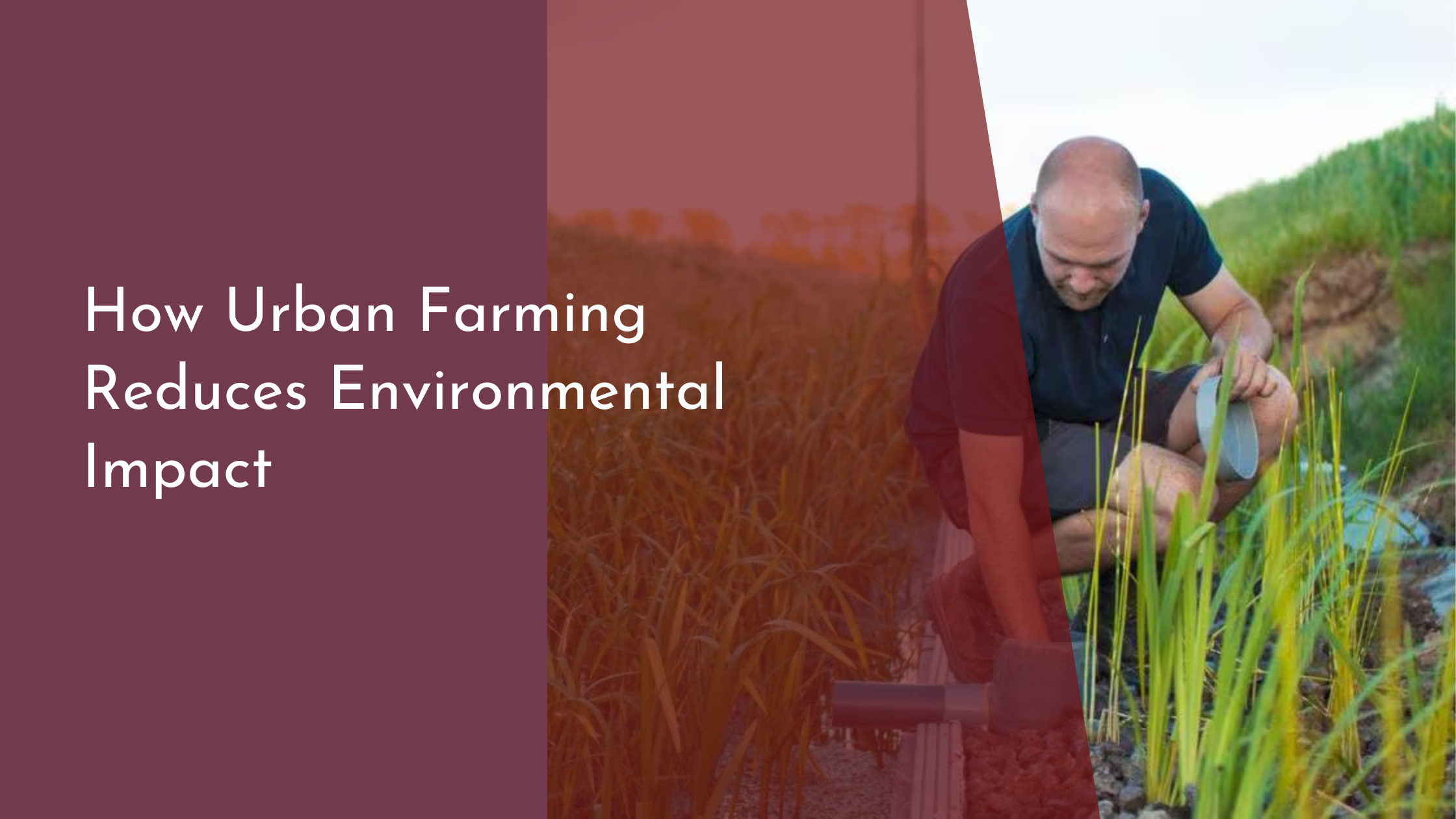How Urban Farming Reduces Environmental Impact
Urban farming, a burgeoning trend in modern cities, is more than just a novel way to produce fresh vegetables and fruits in urban environments. It represents a sustainable approach to agriculture that can help mitigate some of the most pressing environmental challenges we face today. This article explores how urban farming reduces environmental impact through localized food production, water conservation, and increasing urban biodiversity.
Urban Farming: A Green Solution for Cities
Urban farming is rapidly becoming a cornerstone of sustainable city planning. By transforming rooftops, vacant lots, and even walls into productive agricultural spaces, urban farming helps to mitigate some of the environmental issues associated with industrial agriculture. Not only does it make fresh produce more accessible to urban dwellers, but it also reduces the need for transportation and refrigeration of food products, lowering the overall carbon emissions associated with food logistics.
Moreover, urban farming contributes to the greening of city landscapes. It reduces the urban heat island effect, a phenomenon where city areas become significantly warmer than surrounding rural areas due to human activities and infrastructure. By integrating more plant life into urban areas, cities can improve air quality and create cooler, more pleasant environments for their residents.
Reducing Carbon Footprints with Local Harvests
One of the most significant environmental benefits of urban farming is its potential to reduce the carbon footprint associated with food production and distribution. Traditional agricultural products often travel hundreds, if not thousands, of miles to reach urban consumers. This transportation process consumes large amounts of fossil fuels and contributes significantly to greenhouse gas emissions. By growing food closer to where it is consumed, urban farms can effectively eliminate much of this carbon-intensive transportation.
In addition to reducing transportation emissions, urban farming promotes a more sustainable lifestyle by encouraging the consumption of seasonal and locally grown produce. This diminishes the reliance on long-distance imports and reduces the energy needed for food preservation and storage. As people become more aware of where their food comes from, they may make more environmentally conscious choices, further contributing to a community’s overall sustainability.
Water Conservation Through Smart Urban Practices
Urban farming also plays a critical role in conserving water resources, a vital consideration as cities face increasing water scarcity challenges. Many urban farms employ innovative water-saving technologies such as drip irrigation, rainwater harvesting, and hydroponics. These practices significantly reduce water wastage compared to traditional farming methods, making urban agriculture a more efficient option for food production.
By implementing closed-loop systems, urban farms can also recycle water and nutrients, which minimizes runoff and prevents the contamination of local waterways. These practices not only conserve precious water resources but also protect the urban environment from pollution, helping cities become more resilient to climate change impacts.
Biodiversity Boost: Urban Farms as Wildlife Havens
Beyond their role in food production, urban farms are essential in promoting urban biodiversity. The variety of plants grown in urban farms can provide habitats and food sources for a range of wildlife, including pollinators like bees and butterflies, which are crucial for ecosystem health. This contribution to biodiversity is particularly important in urban areas, where natural habitats are often scarce.
Urban farms can also serve as green corridors, connecting isolated patches of wildlife habitat within cityscapes and enabling the movement and interaction of different species. This increased connectivity can improve the resilience of urban ecosystems, allowing them to better withstand environmental changes and support a more diverse range of species.
Urban farming is much more than an innovative trend; it is a practical approach to addressing some of the most pressing environmental challenges in modern cities. By reducing carbon footprints, conserving water, and enhancing biodiversity, urban farms offer a path toward more sustainable urban living. As more cities embrace this green solution, the collective environmental impact will only grow, paving the way for healthier, more resilient urban environments.


